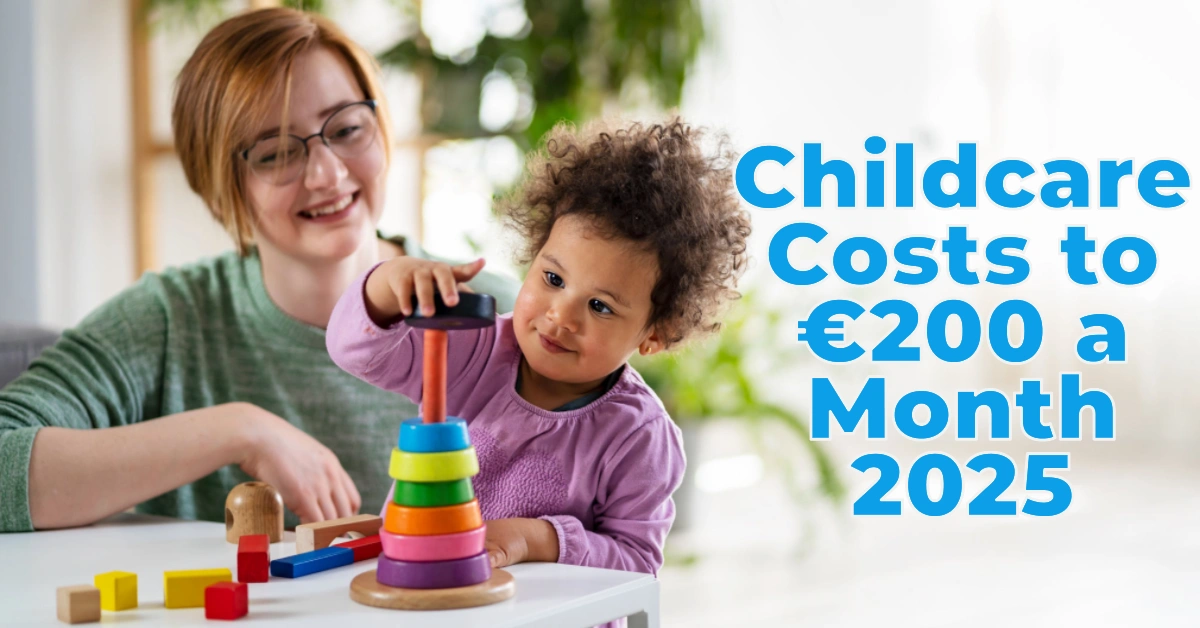In a bold move to ease the financial burden on families, the Irish government has unveiled a new draft programme which includes a transformative plan to reduce childcare costs to just €200 a month. This ambitious goal comes as part of a wider package of proposed reforms aimed at improving living standards across the country.
Table of Contents
Cutting Childcare Costs: A Key Priority
One of the most significant aspects of the newly published draft programme for government is the proposal to drastically reduce childcare fees. Currently, childcare expenses in Ireland can reach upwards of €1,000 a month, a strain on many household budgets. The government’s plan aims to bring this amount down to a manageable €200 per month. This change is expected to be welcomed by parents and caregivers who have long struggled with the high costs of early childhood education and care.
This proposal reflects the government’s commitment to tackling the cost of living crisis, and if implemented, would represent a significant improvement in family financial well-being. The new government’s childcare cost reduction plans will make a notable difference to families across the country, helping to relieve financial pressure and improve quality of life.
New €250 Monthly Benefit Child Support Payment in Ireland 2025
Claim Up to €10,000 for Home Upgrades: How to Apply for Ireland’s Energy Efficiency Grant
How to Apply for the €2,000 Carer’s Support Grant in 2025: Everything You Need to Know
Other Major Initiatives in the Government’s New Draft Programme
Alongside the childcare cost reduction, the government’s draft programme includes several other key measures designed to enhance public services and support economic stability:
- Carer’s Allowance Reform: The means test for the Carer’s Allowance will be phased out over the next five years, making it easier for those who provide essential care to be financially supported without the burden of complex eligibility requirements.
- Public Transport Security: Plans have been set to establish a new security force with powers similar to those of the Airport Police for public transport. This move aims to enhance safety and security across the country’s transport networks.
- Health Care Improvements: The government has set a target for patients to be seen within 10 to 12 weeks for healthcare services, addressing long-standing waiting times in the Irish health system. Additionally, the creation of 4,500 new hospital beds is on the cards, further expanding capacity to meet growing demand.
- VAT Reductions: The government intends to lower the VAT rate for the hospitality sector to 9%, supporting businesses in the industry. Furthermore, energy rates will remain at 9%, preventing cost increases for households during this challenging economic period.
Government Leadership and Cabinet Shifts
As part of the ongoing government reshuffle, Fianna Fáil and Fine Gael have come to agreements on ministerial positions and coalition roles. Fianna Fáil will hold eight senior ministerial posts, while Fine Gael will hold seven. This restructuring aims to bolster the effectiveness of the incoming government and facilitate the implementation of key policies.
Notably, Seán Canney, a member of the regional group, is expected to be appointed as a super junior minister at the Department of Transport, while Noel Grealish will take on a similar role in the Department of Agriculture and Food. Independents Marian Harkin and Kevin ‘Boxer’ Moran are also set to become ministers of state in the new government.
The Path Ahead: What to Expect
With a coalition government expected to be in place by next Wednesday, citizens can look forward to several key reforms being put into action. If the childcare cost reduction and other proposed measures are fully implemented, they promise to reshape the economic landscape in Ireland, making it more affordable for families to live, work, and thrive.
As always, the full impact of these changes will depend on their execution, but for now, the government’s new programme offers a glimpse of a more supportive, fairer Ireland, with better access to childcare, healthcare, and financial support for families.


2 thoughts on “Government’s New Plan to Slash Childcare Costs to €200 a Month 2025: Major Changes Ahead”